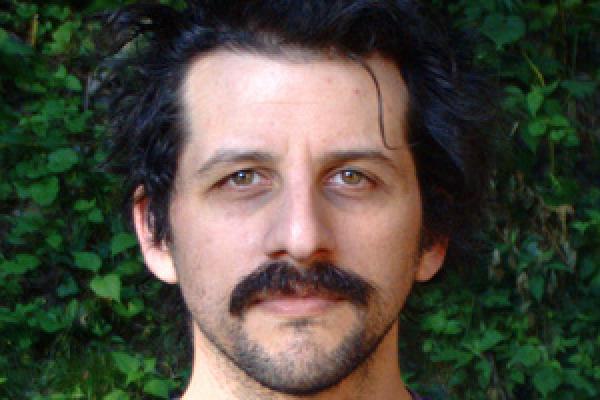Physicist Steven Prohira awarded ‘genius grant’

Steven Prohira, a physicist and a former postdoctoral researcher at The Ohio State University, has been named a recipient of the 2022 MacArthur Fellowship, a prize often called the “genius grant.”
Awarded to people who show outstanding talent and exceptional creativity in their chosen field, the grant from The John D. and Catherine T. MacArthur foundation provides an $800,000 stipend, allotted over the span of five years.
One of only 25 individuals selected this year to become “excavators of what has been overlooked, undervalued, or poorly understood,” Prohira, at 35, is the youngest of this year’s cohort.
“I don't think anyone expects to receive something like this. It's such an unbelievably rare and special thing,“ said Prohira.
Now an assistant professor in the department of physics and astronomy at the University of Kansas, Prohira seeks to unravel the mysteries of the universe by creating a new type of observatory for capturing ultra-high energy subatomic particles called neutrinos that can convey important information about some of the most violent places in the universe across time and space. He did much of this work while at Ohio State.
Amy Connolly, a professor of physics at Ohio State, said that Prohira’s research is all about breaking barriers.
“Steven is someone who puts himself out there and says I’m going to try to do something different,” she said. “He went for something that was bold, and that's really important for scientists to feel like they have the freedom to do.”
Connolly said that Prohira’s scientific contributions could one day end up challenging humanity's fundamental understanding of physics.
During his time as a researcher at Ohio State’s Center for Cosmology and AstroParticle Physics (CCAPP) between 2018 and 2022, Prohira played an essential role in many neutrino-detection experiments. While he was an Ohio State Presidential Postdoctoral Scholar, his work led him to land a National Science Foundation grant and become the study’s principal investigator, a position that was almost unheard of for postdoctoral researchers to receive, said John Beacom, a professor of physics and astronomy.
Though neutrinos rarely interact with matter, once they meet it creates a shower of energetic particles. Scientists have typically tried to detect neutrinos by locating the radio waves that these showers produce, but Prohira’s hunting method locates neutrinos by detecting injected radio waves that reflect from the shower.
To prove his technique, Prohira and his colleagues invented a prototype detector called the Radio Echo Telescope (RET), which searches for neutrinos caused by cosmic rays – a form of high-energy radiation that originates outside our solar system. For instance, low-energy cosmic neutrinos are products of high-temperature space events, such as nuclear fusion reactions, a process which powers our sun and many other stars. But Prohira is searching for their high-energy counterparts.
Prohira also collaborates with James Beatty, a professor of physics and astronomy, and Patrick Allison, a research scientist, both at Ohio State, on developing RET electronics.
To date, only one telescope has ever observed the highest energy neutrinos in action, The IceCube Neutrino observatory. Located in the South Pole, the particle detector is made entirely of Antarctic ice, and stretches far below the surface, extending to a depth of about 2 miles.
Because Prohira’s project is so ambitious, it'll take a significant amount of funding and involvement with the scientific community to achieve, Beacom said. But one of the things that makes the MacArthur award so unique, Beacom said, is its “no strings attached” philosophy. In essence, instead of being awarded for a specific project, the money can be spent however the recipient sees fit.
“The MacArthur program is important for identifying and elevating people who are doing important things outside the mainstream,” Beacom said. “These are people trying to change the world in ways that are unexpected, and we couldn't be more proud of Steven.”
Prohira said he is more than eager to be able to continue his research.
“I have a lot of ideas about what’s next and I'm hopeful that I can put the foundation’s support to good use,” Prohira said.
Article by Tatyana Woodall, Ohio State News
